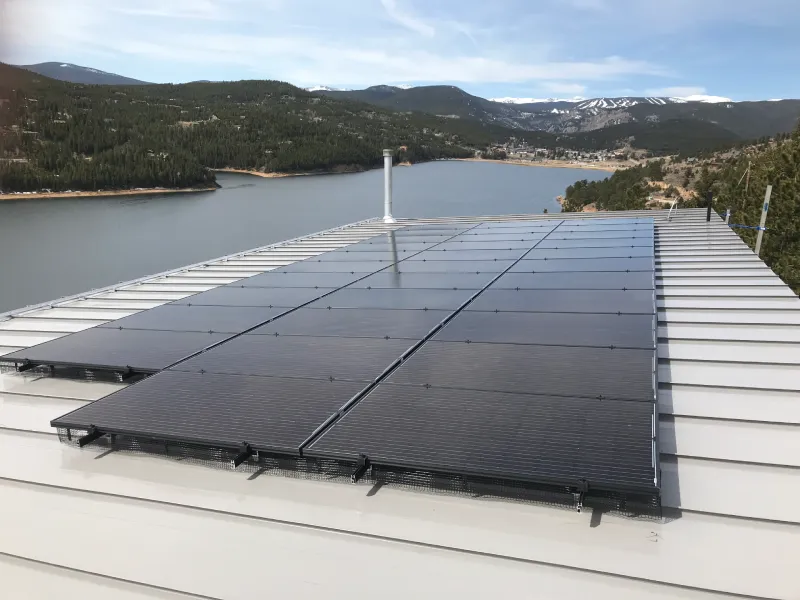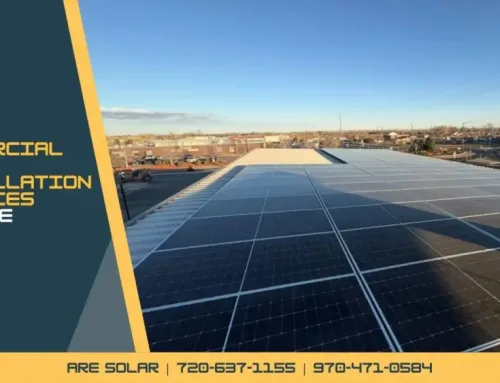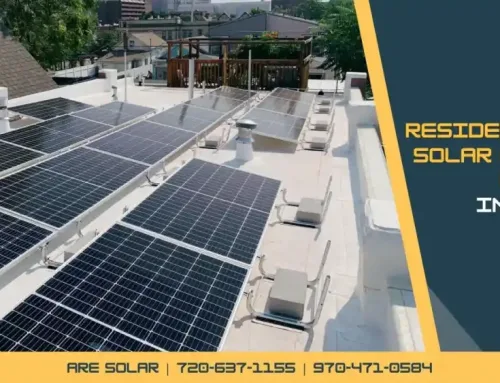Investing in solar energy isn’t just a smart move for the environment—it’s also a long-term financial decision. For homeowners in Erie, Colorado, solar energy offers the potential to lower utility bills, increase property value, and reduce reliance on traditional power sources. But one of the most common questions people ask before switching is: how long will my solar panels actually last? The answer involves a few different variables, from climate to installation quality to the kind of technology being used.
Erie residents experience all four seasons, which means solar panels here are exposed to snow, hail, sun, wind, and fluctuating temperatures throughout the year. These environmental factors, along with routine maintenance, will ultimately influence how well and how long your panels perform. Understanding the average life expectancy of solar panels can help you calculate your return on investment (ROI) and decide if solar is the right solution for your home. In this blog, we’ll explore what affects panel lifespan, how to prolong it, and how to know when it’s time to upgrade.
We’ll also discuss why working with a trusted local installer can make all the difference when it comes to both performance and peace of mind. Whether you’re just beginning your solar journey or already have a system in place, this guide will provide valuable insights to help you make the most of your investment. So, how long do solar panels last, really? Let’s find out.
How Long Do Solar Panels Last on Average?
Solar panels are designed with durability in mind. On average, you can expect most modern panels to last between 25 and 30 years before their efficiency begins to noticeably decline. This doesn’t mean they suddenly stop working after three decades—they simply won’t produce energy at the same levels they once did.
What Is Solar Panel Degradation?
Every solar panel experiences something called degradation over time. This refers to the gradual loss of energy output as the system ages. Industry studies show that most panels degrade at a rate of around 0.5% to 0.8% per year. That means after 25 years, your system will still be producing about 87-90% of its original output, which is still a significant amount of usable power.
Performance vs. Lifespan
It’s important to distinguish between panel performance and functional lifespan. Just because a panel produces less electricity over time doesn’t mean it’s no longer useful. In fact, many panels continue to function efficiently beyond 30 years, especially if they’ve been well maintained. Their decreased performance might only be an issue if your home’s energy demands increase or if your utility rates rise dramatically.
Factors Influencing Solar Panel Longevity in Erie, CO
Living in Erie comes with specific weather patterns and environmental conditions that impact how long your solar panels will last. Fortunately, most high-quality systems are built to handle the elements.
- Weather Extremes in Colorado
Erie sees more than 245 sunny days per year, which is great for solar production. However, the region also experiences heavy snowfalls, strong winds, and occasional hail. While most panels are tested for hail resistance, repetitive or severe impacts can gradually cause wear.
- Installation Quality Matters
How your system is installed plays a massive role in its lifespan. An improper tilt, loose wiring, or poor mounting can lead to premature wear, water intrusion, or even fire hazards. A professional, licensed solar installer will not only ensure code compliance but also optimize your system for Erie’s unique sun angles and roof designs.
- Inverter and System Components
While solar panels for home Erie themselves can last decades, inverters, which convert solar energy into usable electricity, typically last 10 to 15 years. Microinverters and power optimizers may require earlier replacement, and failing to do so can drag down the performance of the entire system.
Maintenance Tips to Extend Solar Panel Lifespan
Routine care can dramatically impact how long your panels perform at peak efficiency.
- Clean Your Panels (But Safely)
Dust, pollen, leaves, and bird droppings can reduce energy output by up to 20%, especially in the spring and summer months. Snow accumulation in winter can also block sunlight. Using a soft-bristled brush and deionized water, you can safely clean your panels without damaging the surface.
- Schedule Regular Inspections
Having a licensed technician inspect your system once or twice a year can prevent small issues—like loose wiring, animal interference, or microcracks—from becoming major problems.
- Monitor Performance Digitally
Most systems come with a monitoring app or portal. By keeping an eye on daily, weekly, and monthly energy production, you can detect performance dips early and address them before they worsen.
- Trim Nearby Trees
Shading from growing trees or new construction can block sunlight and reduce energy efficiency. Keeping nearby trees trimmed ensures maximum exposure throughout the year.
Understanding Warranties and Performance Guarantees
A well-designed system doesn’t just come with hardware—it also comes with protection.
Types of Warranties
- Performance Warranty – Guarantees a specific power output over time, usually 80–90% at year 25.
- Product Warranty – Covers manufacturing defects, often lasting 10–25 years depending on the brand.
- Workmanship Warranty – Offered by the installer and usually valid for 5–10 years, covering installation errors or damage caused during the setup.
Why These Warranties Matter
If solar panels for home Erie begin to degrade faster than expected or fail due to factory defects, warranties ensure that you’re not left paying out of pocket for replacements or repairs. Working with a reputable local installer helps you get these claims processed faster and more effectively.
Is It Time to Upgrade Your Solar Panels?
Even high-performing systems eventually need attention. But when is the right time to consider an upgrade?
Signs You May Need to Replace Your Panels
- Noticeable drop in energy production
- Panels are past the 25–30 year mark
- Inverter requires frequent repairs
- Newer technology offers significantly better performance or efficiency
Weighing the Cost vs. Benefit
Before jumping into a full replacement, consider whether adding new panels to your system or replacing just the inverters might be more cost-effective. Modern panels are more efficient, so fewer may be needed to meet the same energy goals you had years ago.
Invest in Decades of Clean Energy with ARE Solar
Choosing the right solar partner is just as important as choosing the right panels. With deep roots in the Erie, CO community and over a decade of industry experience, ARE Solar is committed to installing systems that are built to last and designed to perform under Colorado’s diverse weather conditions. Our team specializes in custom solutions that meet your energy needs, roof structure, and budget so you can feel confident in your investment.
Whether you’re considering solar for the first time or thinking about upgrading an existing system, we’ll guide you every step of the way be it from consultation to design, permitting, installation, and maintenance. We understand that how long do solar panels last is a critical question, and we’re here to make sure your system performs well beyond expectations. With access to the latest technology and a team that prioritizes transparency and education, ARE Solar delivers more than just panels, we deliver peace of mind.
Ready to make a lasting investment in your home? Contact us today to schedule your free consultation and start building a brighter, cleaner future.



















